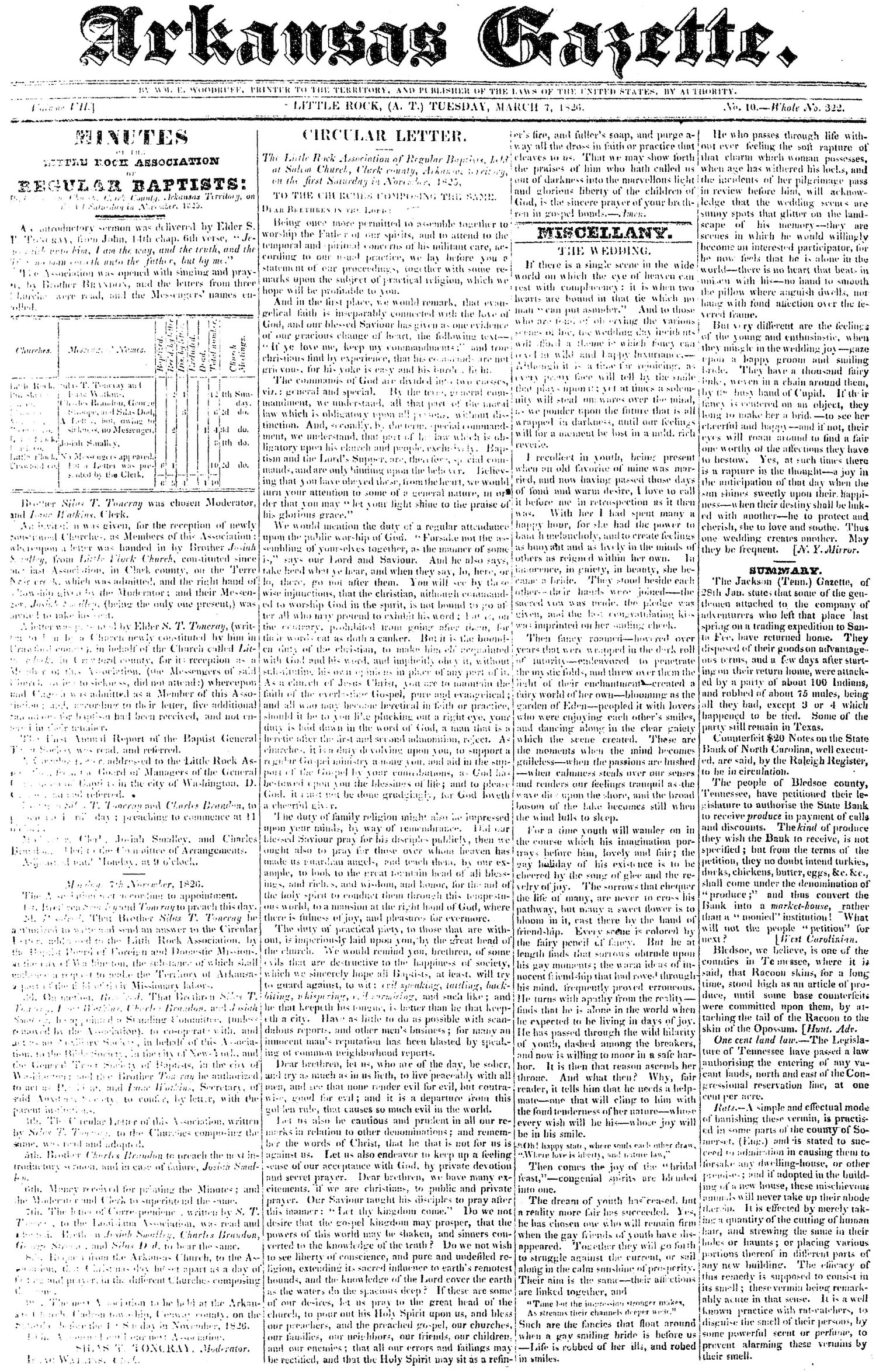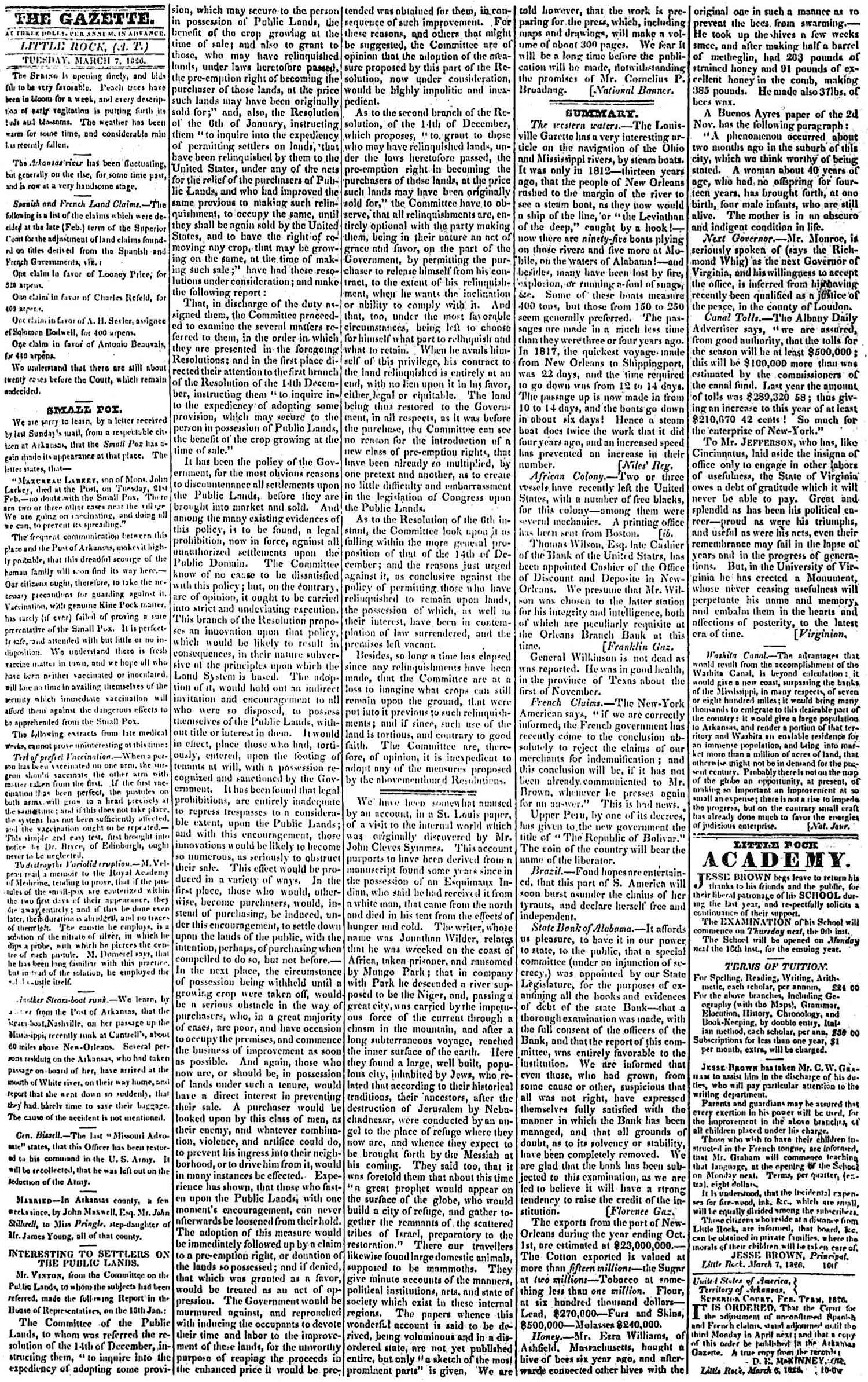
« 1826 »
The word The was no longer part of the Arkansas Gazette’s title when William Woodruff published this March 7, 1826, edition. He dropped it the summer before when he bought a new set of type with a logo nameplate.
Also, a few weeks before this edition, he enlarged the pages to 13 by 20 1/2 inches, with five columns of teeny type.
Among the editorials on Page 3 is news of smallpox at Arkansas Post. The editor predicts it will be only a matter of time before the pox makes its way to Little Rock, and he urges subscribers to be vaccinated. Two weeks later, the Gazette would report two deaths from pox at the Post. Again Woodruff assured subscribers that Kine Pock Matter was a reliable and safe vaccine, and a doctor at Little Rock — Dr. Matthew Cunningham — had the genuine article, received in the most recent mail from Nashville, Tenn.
In Arkansas Gazette: The Early Years 1819-1866, historian Margaret Ross notes that Cunningham’s son, Robert, and his stepson, Charles P. Bertrand, were Gazette apprentices in 1826. Their relationships with master printer Woodruff led to surprisingly dangerous outcomes in the years ahead.
This edition also reflects intense interest in land sales. Settlers who squatted in unsurveyed Territorial land planted crops, and so the question arose of who owned the crops after the land sold?
Millions of acres belonged to military veterans who didn’t live in Arkansas and didn’t want to. They’d earned this bounty land by enlisting or serving in wars, including the War of 1812. In fall 1823, the Territorial Legislature began taxing military bounty lands — inspiring nonresident owners to relinquish their grants.
In one of Woodruff’s many side businesses, he acted as local agent for nonresident buyers, sellers and taxpayers. He represented them for free but required them to send him coins to pay their fees. He kept the coins and paid the fees in Territorial scrip, which had less value — he earned about 25% in each transaction. Ross notes that Woodruff’s Arkansas Military Land Agency brought him more money than did the Gazette — and fewer headaches.
— Celia Storey
You can download a PDF by clicking the image, or by clicking here.

